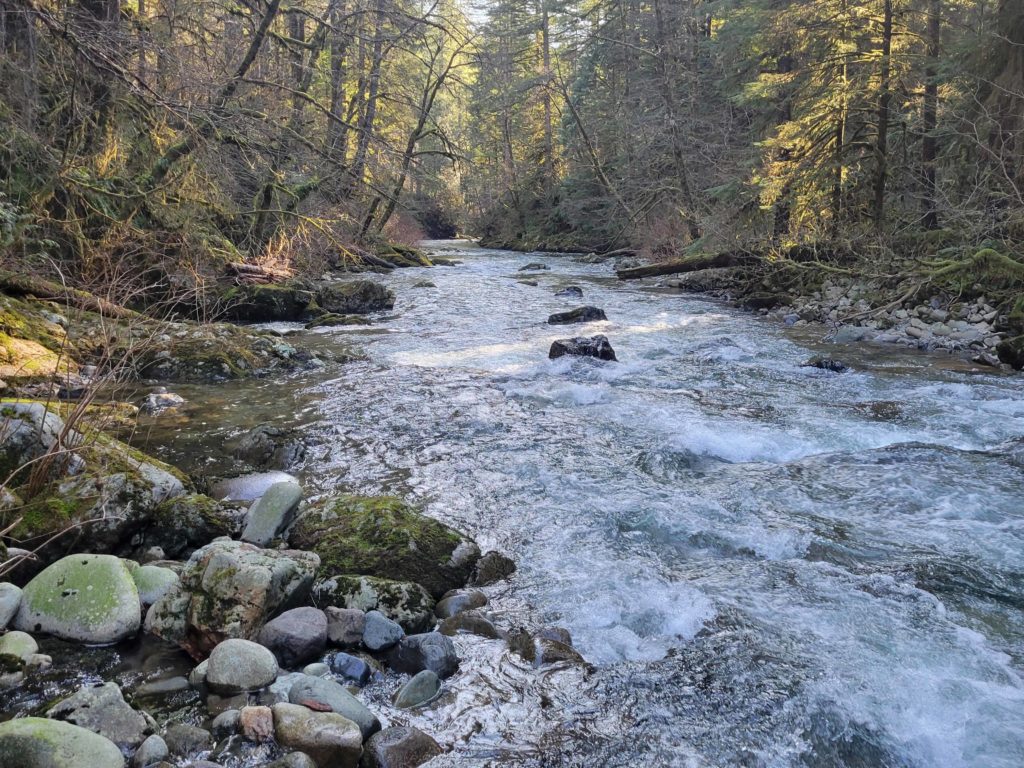Conserving land along our waterways protects important habitat and helps keep our rivers healthy, clean, and more resilient to drought. Riparian Protection projects conserve and restore fresh and saltwater habitat while protecting fish habitat. In doing so, the grants help provide our families, farms, and fisheries with clean water across the state.
This month’s featured project is the West Fork Washougal Conservation project located on the ancestral land of the Stl’pulmsh (Cowlitz), Cayuse, Umatilla and Walla Walla, Confederated Tribes of Grand Ronde, and Confederated Tribes of Siletz Indians. This project has conserved 307 acres and 3.12 miles of federally-listed salmonid shoreline habitat within the Washougal River watershed of the Lower Columbia River in Skamania County, WA. The project site contains 109 acres of riparian area, including 1.6 miles of shoreline on the West Fork Washougal River, and 1.52 miles of shoreline on perennial tributary Jackson Creek. The uplands consist of steeply sloped conifer forests, composed of mature Douglas-fir, cedar, and hemlock. This project has preserved one of the oldest and largest remaining private forests in the Washougal Watershed. It supports watershed processes and enables the development of the large, woody structure that is necessary to restore instream habitat.

